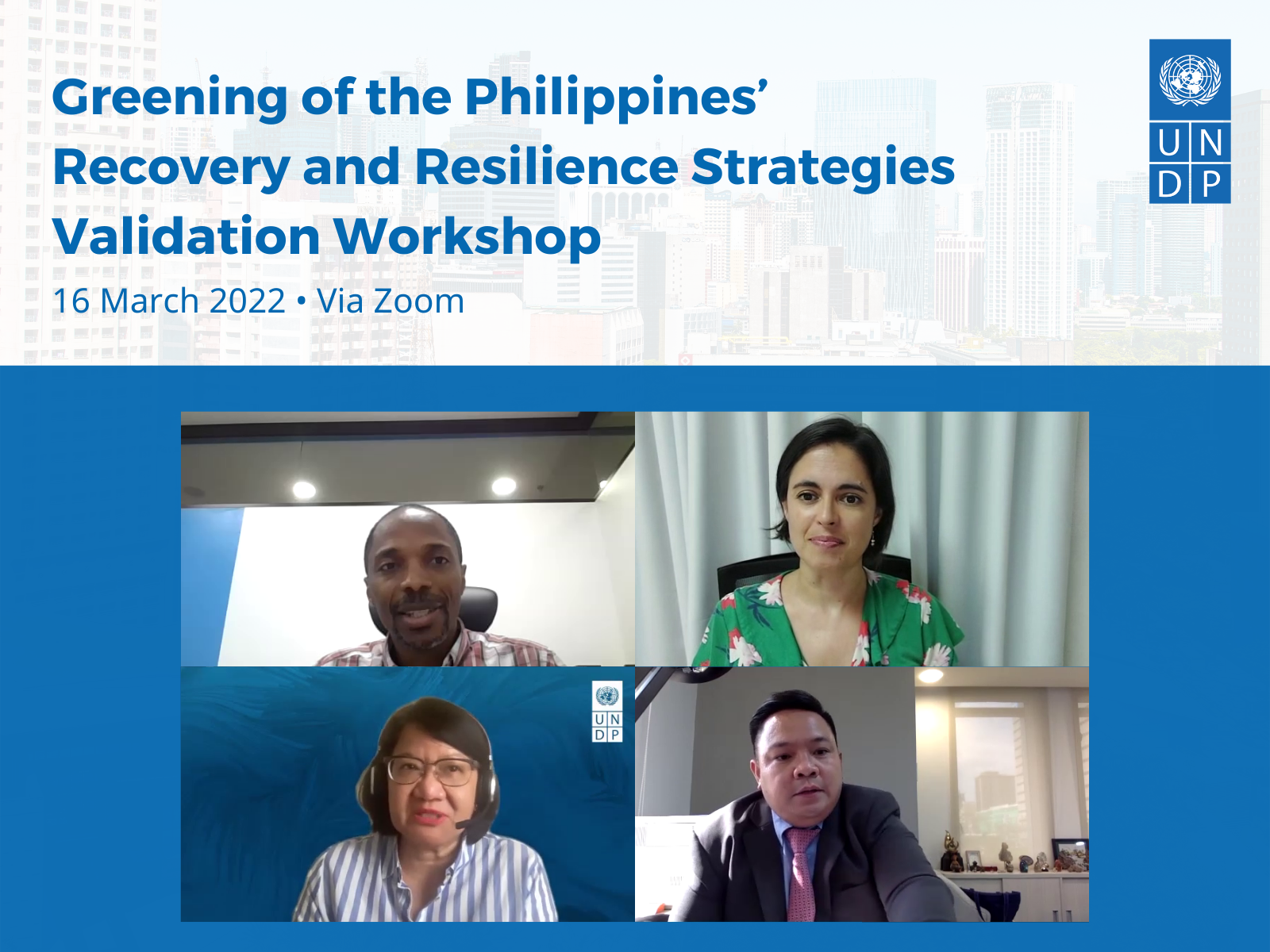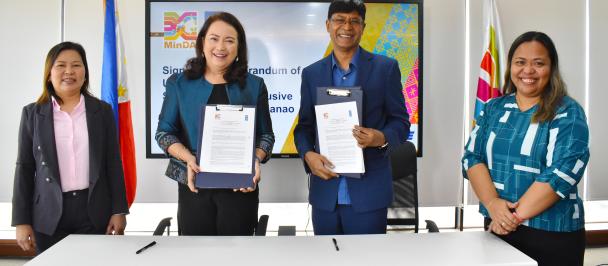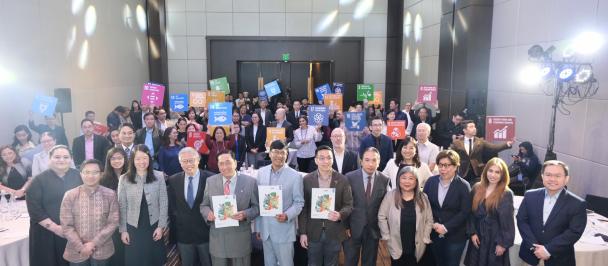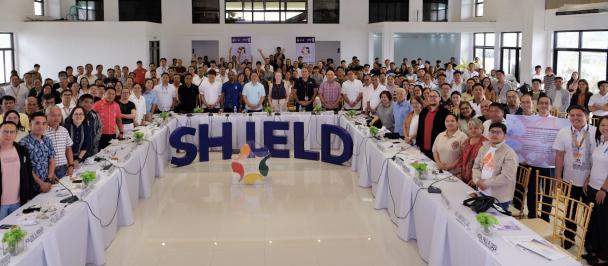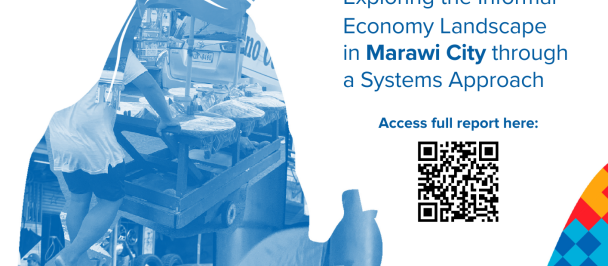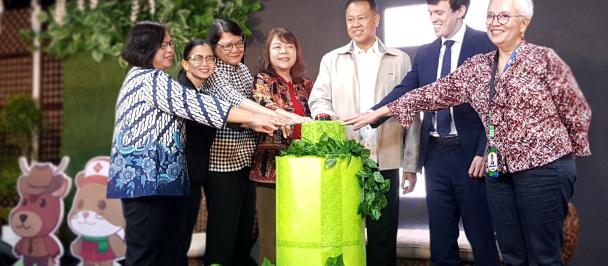(from upper left, clockwise) Edwine Carrie, UNDP Deputy Resident Representative to the Philippines; Dr. Rebecca Shah, Political Counsellor at the British Embassy Manila; Neil Adrian Cabiles, Assistant Secretary of the Department of Finance; and Floradema Eleazar, EnP, Team Leader of the UNDP Climate Action Programme Team during the validation workshop.
Manila, Philippines - At least PHP 1.1-billion lost, around 2.2-million workers displaced, and numerous adverse impacts to the environment due to infectious wastes such as face masks—these are just some of the impacts of the pandemic that have rexeled the Philippines in the past few years.
Diseases such as COVID-19 emerge from environmental degradation. When such pandemics break out, unsustainable economies tend to follow. If the Philippines continues on its current business-as-usual recovery pathway, it will remain vulnerable to increasingly significant health, climate, and disaster risks in the future.
Driven by the goal to understand the link among human health, the environment, and the economy, and to analyze how the Philippines can pursue a more sustainable recovery track, the United Nations Development Programme (UNDP) in the Philippines commissioned an upcoming technical report titled “Greening of the Philippines’ Recovery and Resilience Strategies.” The report, which was undertaken with the support of the British Government, targets to inform the country’s recovery and resilience policies at the national, local, and sectoral levels.
Over 40 high-level and technical participants from Philippine national government agencies, private sectors, and civil society organizations gathered last 16 March 2022 in an online workshop to provide valuable feedback and insights on the report’s current draft. The stakeholders came from the agricultural, construction, manufacturing, transportation, and energy sectors, as well as government oversight agencies.
“We hope that through deepening our understanding of the linkage between the pandemic, the environment, and the economy, we will be able to contribute to reshaping the Philippines’ low-carbon and resilient development path,” said Dr. Rebecca Shah, Political Counsellor at the British Embassy Manila, during the workshop.
Green recovery can be defined as measures that promote a long-term transformation based on three main pillars: sustainable and balanced green growth, positive environmental and social impacts, and the strengthening of resilience.
The review and analysis in the report focus on the sectors of agriculture, construction, manufacturing, and transportation. The sectors were prioritized due to their percentage of contribution to the overall gross domestic product; growth slowdown and employment losses due to the pandemic; alignment with the country’s climate action plans; and prioritization in the “We Recover as One” report of the Inter-Agency Task Force for the Management of Emerging Infectious Diseases.
“As we recover from the pandemic, it is time to hit the reset button so that no one is left behind, so that the development trajectory of the country benefits all in the country, and to facilitate acceleration of the progress towards the Sustainable Development Goals,” noted Mr. Edwine Carrie, UNDP Deputy Resident Representative to the Philippines.
Inputs from the stakeholders are currently being collated and considered for the final technical report set to be released during a forum planned for the second quarter of the year.
###

 Locations
Locations